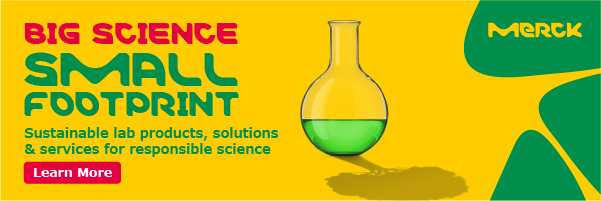Corporate Responsibility
Making sustainability a commercial reality 20th December 2018
By Helen Mets, President of DSM Resins and Functional Materials
Helen Mets, President of DSM Resins and Functional Materials explains how DSM sets the bar high by aiming to create products

Helen Mets, President of DSM Resins and Functional Materials explains how DSM sets the bar high by aiming to create products that safeguard human health, lower carbon footprint and tackle climate change, and minimize the use of precious resources. With a growing portfolio of eco-friendly coating resins, DSM is well on the way to achieving all of these objectives.
It is relatively easy to talk about sustainability, harder to create sustainable products – and the real challenge is to actually make them a commercial reality. Throughout our industry, there is still quite a lot of miscomprehension around the topic of sustainability. Many producers/formulators still need to be convinced that truly sustainable products can be high performance and available at the right price. This is evident from the fact that solvent-based paints are still dominant in certain parts of the world where effective and cost comparable alternatives are available. There is an ongoing need for education and communication.
Of course, the necessary conditions for sustainable product development need to be in place – not only an open-minded market, but the right supply chain partnerships that share your vision and are prepared to take on the myriad of issues involved, from supply of sustainable resources and materials to energy efficiency and high performance.
Sustainability at the core of everything we do
After all, there is very little point in succeeding commercially in a world that ultimately fails. So we have made sustainability an intrinsic part of our commercial strategy, which is aligned with the Sustainable Development Goals set by the United Nations General Assembly in 2015.
For many years, DSM has been listed at or near the top of the annual Dow Jones Sustainability Index. In 2017, we ranked 2nd on Fortune’s Change the World list based on the social impact that’s woven into our core business strategy. Meanwhile, through the We Mean Business coalition, we are one of a group of global companies calling for a global carbon tax.
We take our responsibility seriously and that is why we work with our customers and other players in the value chain. Together, we develop and implement solutions that benefit society. Sustainability is no longer a nice-to-have; it’s a must-have. Today, at DSM, we measure the effect that every one of our products has on people and the planet and benchmark this against conventional, less sustainable equivalents. We call them Brighter Living Solutions, and they currently account for 62% of our entire portfolio.
DSM Resins is passionate about sustainability. For us, being sustainable means safeguarding healthy living, by reducing hazardous substances and VOCs; combating climate change, by limiting energy use and carbon emissions; and creating circular solutions, by using renewable raw materials and designing for recyclability.
Reducing the use of toxic materials
Despite the progress our industry has made in reducing the use of toxic materials, the reality is that, today, paint, coatings and adhesives are responsible for some 30% of all the world’s volatile organic compounds (VOCs). Various regulators around the world are taking steps to reduce the use of harmful materials but in the end. It is up to all of us to make it happen.
This is why product stewardship is a major part of our health and sustainability agenda at DSM. In the case of coating resins, this means striving to reduce the risk of human exposure to hazardous substances – not just VOCs, but also heavy metals and other substances all along the supply chain, including formulators, coaters, brands, and consumers.

Low-to-zero VOC plant-based paint resins
The Decovery plant-based range is a coating resin solution with maximum performance and minimal impact on the planet. The Decovery range makes it possible to produce an eco-friendly, low-toxin paint made from plants that performs as well as crude oil-based paint. The range was specifically designed to transform the coatings market, moving towards a more bio-based future beyond waterborne- alkyds.
Currently, we use corn and corn stover to create the required polymer building blocks. Based on these new bio building blocks we are able to prepare high performing resins with a 50% bio-based content and we are developing the next generations with contents of up to 70% and even 90%.
Performance comes first
Moving to a bio-based product without performance is neither durable nor sustainable. In our approach, bio-based solutions need to be at least as good as the products we aim to replace, always striving for better and tailored towards specific applications. Functionalities we need to take into account include, ease of formulation, no odor, longer open time, improved scratch resistance and many other effects depending on the composition of choice.
The Decovery portfolio is not linked to one specific technology, so there are no limitations to its applications. As DSM Resins and Functional Materials, we have many technologies such as acrylics, wb alkyds, WB urethanes, polyesters, UV and even starch resins in our portfolio. One of our strengths is that we are able to combine technologies (sometimes we use as many as three, our so called tribrids) to create a resin with the desired property profile. Bio-based and recycled building blocks are, and will be, used for all technologies so there are plenty of opportunities for decorative and architectural applications such as walls, ceilin gs, flooring and joinery, as well as for furniture and kitchen cabinets.
The Waterborne China Platform
A great example of how industry can work together is the Waterborne China Platform (WBCP). This initiative was co-founded nearly a decade ago by DSM, together with other coatings players in China. Its objective was to help the Chinese government reduce VOC emissions in the booming industrial container industry.
Around 97% of all the industrial transportation containers in the world are manufactured in China. Every year, around three million twenty-foot equivalent units (TEUs) need coating, and until very recently this was achieved with solvent-borne technologies. The only problem: these coatings contained an estimated 50% VOCs.
Over a number of years, the WBCP organized a series of meetings, seminars and workshops aimed at educating everyone in the value chain on the benefits of moving to a waterborne coating technology. This included –the body that represents the global container industry, the Container Owner Association (COA). There was much debate and discussion, as well as the occasional disagreement. And eventually, the industry came around to using a technology that emits eight times fewer VOCs than traditional solvent-borne coatings.
After years of painstaking work, the project, chaired by DSM, is now bearing fruit – following the migration of the entire industry from solvent-borne to waterborne coating technology. Today, some 90% of all industrial containers are now based on waterborne coatings, from primers to topcoats.
The result is impressive: the industry has reduced its VOC emissions from 160,000 tons per year to just 15,000 tons. By taking a leadership position in solvent reduction, the Chinese container industry has proven that it really is possible to combine sustainability with commercial viability.
The challenge now is to extend innovations such as these into new industries and applications. We are setting the bar high, but nothing is impossible if we do this together as an industry. Sure, it will take a lot of work and co-operation. We cannot do it alone – so let’s do it together.



